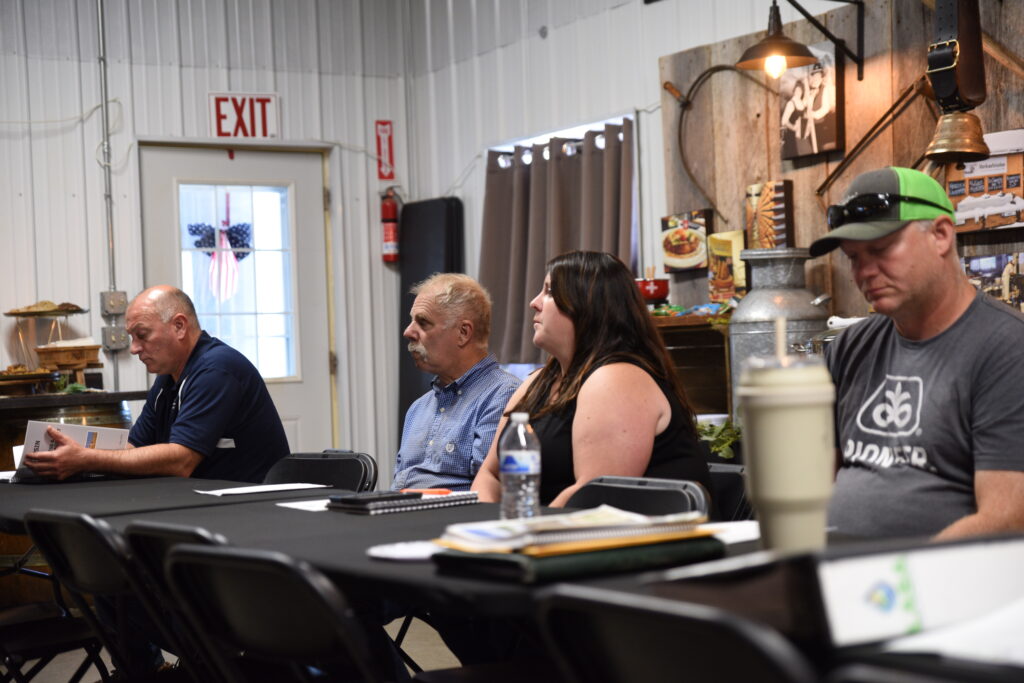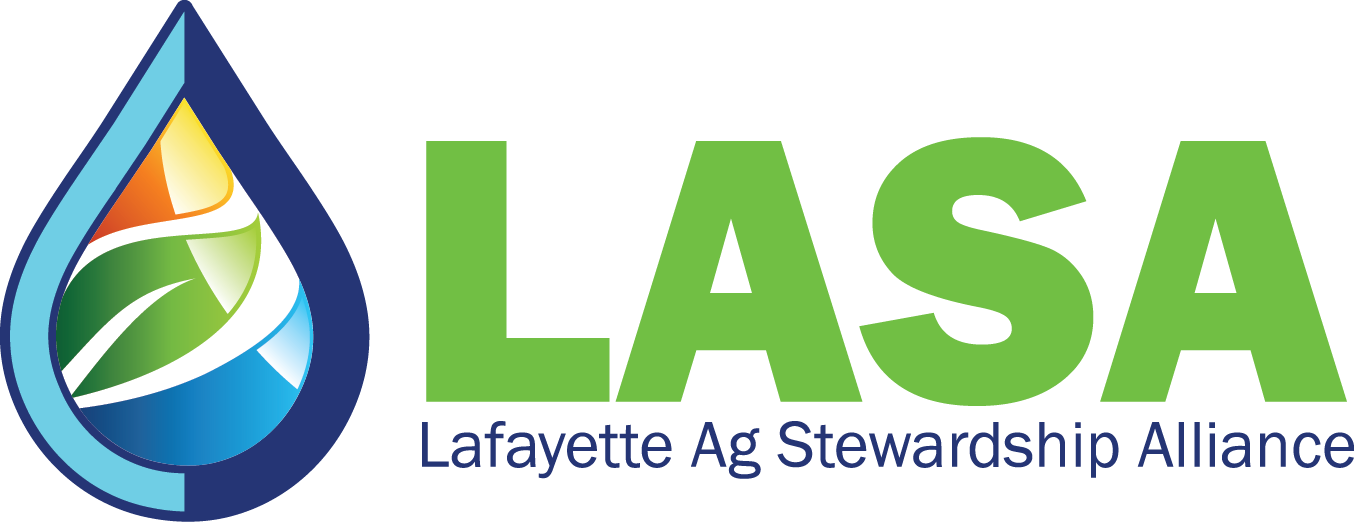


This year marks an important milestone for the Lafayette Ag Stewardship Alliance as they wrap up their five-year sustainability project. This is a significant achievement for the group, demonstrating their unwavering commitment to sustainability. Using data to understand on-farm sustainability and the environmental impact of farming practices has been the driving force for the group’s members. Over the past five years, these farmers have collaborated with Farmers for Sustainable Food and Houston Engineering Inc. to complete the project and generate sustainability metrics to inform their management decisions on the farm.
Participants in the LASA Sustainability Project gathered at The General Store in Gratiot in July to review the findings from this past year. Farmers had the opportunity to examine their own farms’ data and compare it to the averages of the whole group as well as state and national averages. The project involves 15 farms managing over 40,000 acres.
Several metrics in the project report show consistent, positive progress throughout the entirety of the project.
The group’s water quality scores reflect a high adoption rate of best management practices. On average, throughout the five-year study, 83% of the reported acreage has mitigated the risk of excessive loss of nitrogen to subsurface water.
The LASA Sustainability Project highlights the continuous improvement efforts in soil conservation and water quality among these farmers.
While the initial project is wrapping up this year, many of the members are transitioning to participation in the FSF Climate-Smart Program to continue their efforts. During the meeting, those in the Climate-Smart program also reviewed their first-year results in that program and began setting goals for the next crop year. Expanding on findings from the LASA Sustainability Project, the FSF Climate-Smart Program gathers more data and information to help showcase a more holistic understanding of each farm’s sustainability progress, and, if the farmer chooses, this program also helps facilitate conversations about sustainability throughout the supply chain, including connections between farmers and processors.
In addition to environmental metrics, a financial analysis of the return on investment of conservation practices was reviewed. This portion of the program had three members participating with support from Southwest Technical College.
Data analysis from both projects provides a wealth of information to LASA farmers. By understanding their farms’ current environmental state, LASA farmers can be more strategic and effective in implementing new sustainable farming practices as they work toward protecting their natural resources and improving their surrounding community.
The LASA Climate-Smart project in partnership with Farmers for Sustainable Food is open for enrollment. Farmers interested in learning more should visit farmersforsustainablefood.com/climate-smart/.

